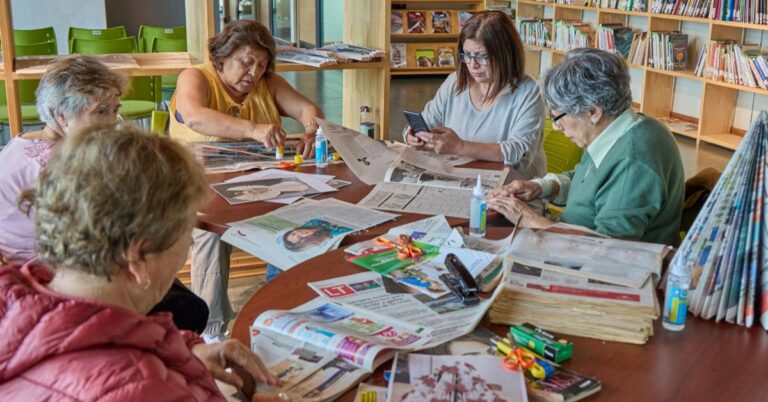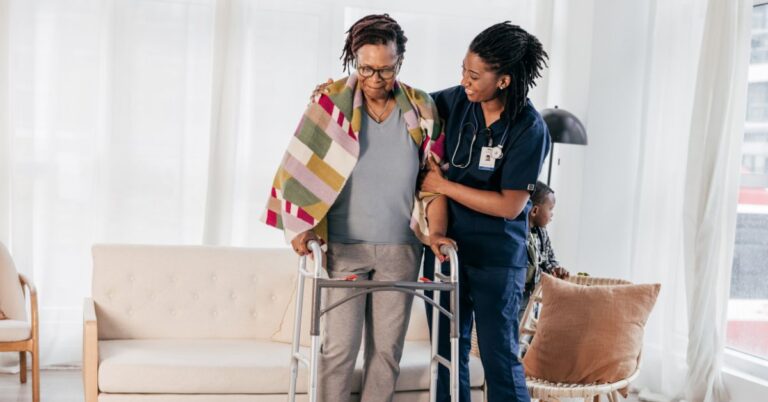
Seniors: Stay Cool & Safe This Summer!
Summer heat poses serious health risks for older adults. Each year, over 600 Americans die from heat-related health problems—a concern that matters deeply if you’re a senior. Your body responds differently to high temperatures as you age, creating safety challenges that shouldn’t be overlooked. The natural cooling systems your body once relied on become less effective with the passing years. Physical changes and medication side effects make seniors especially vulnerable when temperatures climb.
The Risks of Summer Heat
Why older adults are more vulnerable
Several factors put you at higher risk for heat-related illness:
- Medical conditions – Heart, lung, kidney diseases and diabetes increase your vulnerability to heat problems
- Medications – Many common prescriptions, like diuretics, sedatives, blood pressure medicines and certain antihistamines, interfere with temperature regulation or sweating
- Physical changes – You may feel thirst less keenly, sweat less effectively and store fat differently as you age
- Living situation – Without proper air conditioning or ventilation, your home can quickly become dangerous during hot spells
Common heat-related health issues
Heat illness presents differently depending on severity. Knowing these warning signs helps you respond before minor problems become serious:
Heat rash shows up as small, itchy bumps where sweat gets trapped under your skin. While uncomfortable, you can usually manage it at home by keeping skin cool and dry.
Heat cramps cause painful muscle tightening during hot weather activities. Your body temperature stays normal or slightly elevated, but these cramps warn you to take action.
Heat exhaustion requires immediate attention. You might feel dizzy, weak, nauseated or develop a headache, heavy sweating and rapid pulse. Your body temperature rises but stays below 104°F. Without quick treatment, heat exhaustion can progress to something far more dangerous.
Heat stroke demands emergency medical care. Your internal temperature climbs above 104°F, potentially causing confusion, slurred speech or behavior changes alongside physical symptoms. This medical emergency can permanently damage organs or prove fatal without prompt treatment.
Simple Habits That Keep You Cool
Drink water regularly
Your body’s defense against heat starts with consistent hydration. Many older adults miss early thirst signals, which means you might be dehydrated before you feel the need to drink. Turn water consumption into a scheduled part of your day rather than waiting until you feel thirsty. For better hydration:
- Drink 6-8 glasses daily or calculate your target by taking one-third of your body weight in ounces
- Place water within easy reach—keep a filled bottle beside your favorite chair or take one whenever you go out
- Add water-rich foods to your meals, like watermelon, cucumbers, strawberries and soup
- Cut back on alcohol and caffeine since they work against your hydration efforts

Dress for the weather
Clothing choices directly affect how well your body handles heat. The right fabrics help air move across your skin and allow sweat to evaporate as nature intended. Choose natural fabrics like cotton and linen that breathe better than synthetic options like polyester. These materials let air flow freely and help moisture move away from your skin instead of trapping it. Light-colored, loose-fitting clothes reflect sunlight rather than absorbing its heat.
Use fans and air conditioning wisely
Fans alone might not help seniors when temperatures pass 95°F, despite common advice. They work by helping sweat evaporate, but older adults often produce less sweat, limiting this cooling effect. Try these approaches for better cooling:
- Run air conditioning during the hottest hours—even small temperature drops of 3-6°F reduce strain on your body
- Set up fans to create cross-breezes when temperatures remain moderate
- Pull blinds closed when direct sunlight hits your windows to keep indoor spaces cooler
Staying Safe While Enjoying the Outdoors
Plan activities during cooler hours
When you venture outside, it matters tremendously for your comfort and safety. Early mornings (6-8 AM) offer peaceful moments with gentler temperatures—ideal times for walking, light gardening or stretching outdoors. Evening hours (4-6 PM) similarly provide milder conditions while still giving you enough daylight to enjoy nature.
Find shade and rest often
Make shade your constant companion during outdoor time. Trees provide natural cooling, though umbrellas and canopies work wonderfully too. Remember these simple practices:
- Take breaks before you feel exhausted
- Look for naturally shaded spots under trees or building overhangs
- Choose resting places away from direct sunlight
Bring water and wear sun protection
Sun protection isn’t optional, regardless of how brief your outdoor plans might be. Apply broad-spectrum sunscreen (SPF 30+) before going outside and reapply every two hours or after sweating. A wide-brimmed hat shields your face while proper sunglasses protect your eyes from harmful rays. When possible, choose lightweight, long-sleeved clothing for an added layer of protection. Don’t skip sunscreen on cloudy days—up to 80% of harmful rays pass through cloud cover.
Stay Cool, Stay Safe: Your Summer Action Plan
Prevention works better than treatment when it comes to heat-related problems. Your body simply doesn’t cool itself as effectively as you age, making consistent habits around hydration, clothing choices and activity scheduling essential to your well-being.
Summer heat shouldn’t stop you from enjoying seasonal pleasures in our senior living community in Farmington Hills, MI. Simple adjustments like moving your garden time to cooler morning hours, seeking shaded areas and wearing appropriate sun protection let you safely experience summer’s joys. Contact us at (248) 477-7400 to learn more about The Commons at Farmington Hills and how we prioritize the well-being of our residents.
FAQs
Q1. How can seniors stay safe during a heat wave?
Seniors should stay hydrated, use air conditioning or fans, wear lightweight and light-colored clothing, avoid direct sun exposure and use the buddy system for regular check-ins. It’s also important to stay indoors during the hottest parts of the day and take cool showers or baths when needed.
Q2. What are some simple habits that can help seniors keep cool?
Seniors can stay cool by drinking water regularly, dressing in light, breathable fabrics, using air conditioning and fans wisely, planning outdoor activities during cooler hours, seeking shade when outside and eating smaller, more frequent meals to avoid causing excess body heat.





